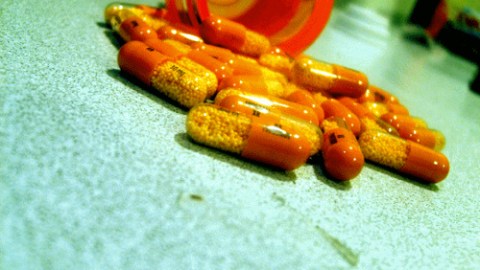“The Ethicist” Befuddled by Ritalin and Little League

The New York Times’ resident ethicist, Randy Cohen, had some confused but caustic advice for a parent who wrote in with the following quandary:
My 9-year-old son, who has attention-deficit hyperactivity disorder (A.D.H.D.), was prescribed medication and is doing much better in school and plays much better in his midweek Little League baseball games. He does not take medication on weekends. Would it be ethical to give it to him on a Saturday if he’s pitching in a big game? His doctor sees no health risk. In fact, by keeping the dosage constant, my son might be more comfortable, avoiding the “ramp up” and “ramp down” effect. NAME WITHHELD, PARSIPPANY, N.J.
Cohen lets the Parsippany parent have it:
Should your son use his meds not as intended, but as a performance-enhancing drug for baseball? Luckily, I have Mark McGwire right here, and he’ll continue writing this response. . . .
Why not give the kid his meds before games? Parsippany, Jr. has a medical condition. He uses stimulant drugs to manage the symptoms on school days. It’s not like his ADHD magically goes away when he gets out of school. PJ still has the condition on weekends, it’s just that he and his parents have decided that the benefits of the medication only outweigh the side effects on school days. Incidentally, it’s pretty common for kids who manage ADHD with stimulants to modify their dosing schedule based on their routines. If PJ’s got a weekend activity that requires sustained focus, like baseball, then the cost/benefit analysis shifts. It might make sense for him to take his meds before baseball, too.
If PJ’s medication also helps him concentrate during baseball games, then he should use it. He has a disorder that interferes with his concentration, he has a right to use drugs to control his symptoms, whether he’s in school, at home, or on the mound. He wouldn’t be cheating because he would be fixing a medical problem, not artificially enhancing his faculties. The fact that people without ADHD can use stimulants to enhance performance is irrelevant. That’s not what PJ would be doing if he were to take the prescribed dose on game days.
Imagine that PJ is slightly nearsighted. He doesn’t like wearing his glasses because he thinks they’re goofy looking and they tend to fall off when he’s roughhousing with his friends. He does just fine without them, unless he needs to read the blackboard at school. So, usually PJ just wears his glasses at school and goes without when he’s at home. Would Randy Cohen get all huffy if PJ decided he also wanted to wear his glasses to pitch?
Therapeutic Ritalin isn’t a banned substance in Little League. (Good thing, too. If it were, the whole enterprise might have to shut down.) Even Cohen seems to be okay with the fact that PJ pitches under the influence on weekdays. As far as PJ’s doctor is concerned, the kid might be better off taking the drugs every single day instead of going on and off all the time. Strangely, Cohen asserts that it would be okay for PJ to take the drugs every day if his doctor recommended them, even if his baseball game improved as a result. From the sounds of the letter, his doctor has more or less recommended daily dosing. So what’s the problem?
Obviously, it would be unethical for PJ’s parents to give him a double dose of stimulants before baseball games. If they did that, they would cross the line from correcting a deficit to artificially enhancing performance. However, as long they stick to the prescribed dose, they and their son are ethically in the clear. The only caveat is that PJ should be deciding for himself. If he’d rather play unmedicated, his parents shouldn’t pressure him to do so. At seven, PJ is old enough to make up his own mind. He needs to hear the facts from his doctor and his parents. He doesn’t need a guilt trip from Randy Cohen.
Photo credit: Flickr user sugar, distributed under Creative Commons.





